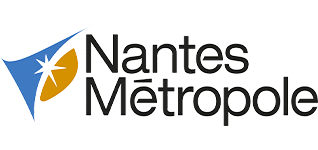Nantes Métropole

Nantes Métropole is a conurbation authority gathering 24 municipalities, including the City of Nantes. In line with its roadmap “Nantes, metropolis in transition”, the community is working to become carbon neutral by 2050. On this subject, the metropolis is already cooperating with various partners within European networks – including the Energy Cities network since 2006 – and regional networks. The urban area of Nantes is renowned for its commitment to participatory democracy. The territory and the city actively collaborate with citizens to establish energy and climate strategies.
Cooperating for a more sustainable region
On citizen issues, Nantes is a model of experimentation in participatory democracy.
In 1996, the conurbation committee created the Development Council, a multidisciplinary and autonomous citizens’ council. Bringing together nearly 300 organisations and volunteer citizens, the Development Council expresses the opinion of civil society to the territorial authority.
In 2016, the public authority also organised a Great Citizen Debate on Energy Transition. Led by an independent and 100% citizen commission, the debate led to the adoption of 33 commitments. They were used to draw up the Energy-Climate Plan, the reference document for the territory’s climate transition.
In its Local Urban Plan (PLUm), Nantes Métropole guarantees the preservation of 62% of its natural and agricultural areas. In 2020, the territory launched a public survey to improve the roadmap based on feedback from residents.
Developing accessible solutions to change habits
By 2030, Nantes Métropole wishes to halve its CO2 emissions by capita. Therefore, the authority is aiming for “a more accessible metropolis by every measure”. With the Urban Travel Plan (PDU), Nantes Métropole plans to develop its network of routes. The territory also wants to adapt its infrastructures for disabled people, and prices for small budgets.
Finally, because access to quality information can facilitate action, the Metropole created the “Allonantes” hotline. The aim of the system is to provide citizens with information on everyday issues (waste management, opening hours of public establishments, etc.). A space is also available on the metropolis’ website to find the answers to the most frequently asked questions.
Source: “Nantes, metropolis in transition” roadmap; “33 commitments for the energy transition” web page on the official website of the City and Nantes Metropole; Energy Cities’ website;
 France
France